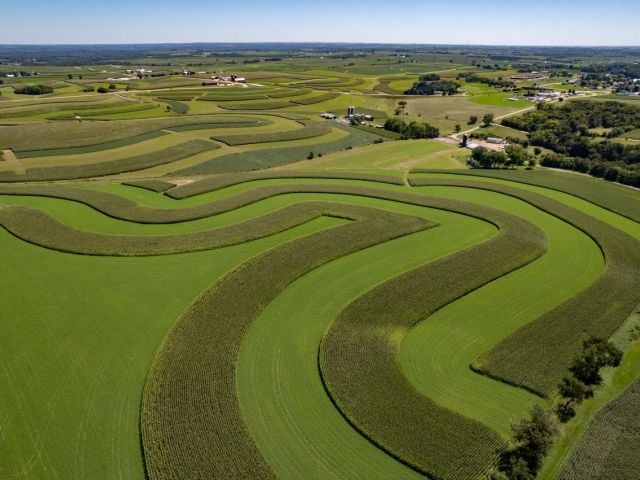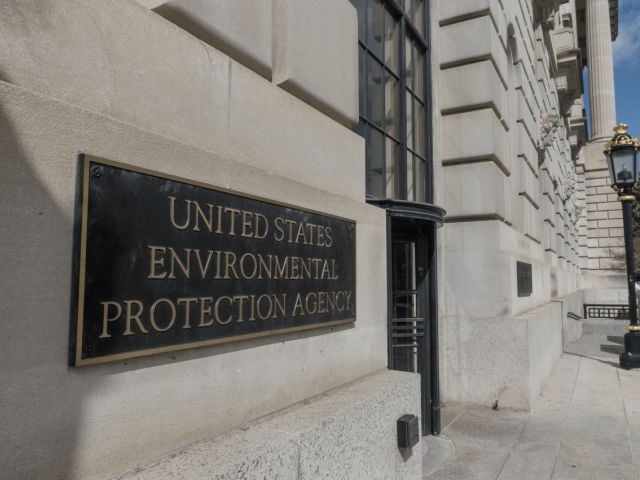MINNEAPOLIS – Farmers received almost $1.5 billion in federal crop insurance payments from 2001 to 2020 for flood-related crop losses in the Mississippi River Critical Conservation Area, a region increasingly afflicted with more frequent flooding linked to the climate crisis. That money could instead have retired over 330,000 acres of frequently flooding land, a new Environmental Working Group analysis finds.
“In the face of an intensifying climate emergency, taxpayer dollars should be used to take more marginal acres out of agricultural production, instead of continuing to subsidize farming on cropland that has already flooded repeatedly,” said EWG Midwest Director Anne Schechinger. “It’s long past time for the Department of Agriculture to holistically look across all of its programs and evaluate how to best support climate-friendly farming decisions.”
EWG’s investigation compared USDA data on crop insurance payments in the Mississippi River Critical Conservation Area, or MRCCA, with the average costs of federal conservation land easement programs that pay farmers to retire and restore cropland. The MRCCA is a USDA-designated “area of focus” that encompasses more than 387 million acres across 13 states.
Many parts of the MRCCA experience frequent flooding that is getting worse, thanks to the climate crisis. Putting over 330,000 acres of environmentally sensitive land – an area half the size of Rhode Island – into permanent conservation easements in the MRCCA would reduce greenhouse gas emissions from farming and curtail soil erosion and other agricultural pollution that ends up in drinking water and recreational waters.
The USDA has several programs that pay farmers to permanently retire and restore environmentally sensitive land, including land that floods frequently. But the agency turns away nine out of 10 producers who apply to enroll in the wetlands portion of its leading initiative, the Agricultural Conservation Easement Program.
Meanwhile, billions of taxpayer dollars are spent annually on the USDA’s Crop Insurance Program nationwide, with costs soaring since the 1990s, at least in part because of climate change–related extreme weather events, as EWG showed in a January report. Yet the program does not encourage, let alone require, farmers to adapt to a rapidly changing climate or adopt climate-friendly agricultural practices.
In fact, by subsidizing farming on frequently flooding lands, crop insurance may discourage climate change adaptation. That’s because farmers know some losses will be covered by the program and they won’t have to pay the full cost of their crop insurance premiums, which taxpayers cover on average at 60 percent.
Within the MRCCA, 44 percent – $635.8 million – of the flooding indemnities paid to farmers went to just 41 of 1,017 counties. Each of those 41 “hot spot” counties received over $8 million in flood crop insurance indemnities between 2001 and 2020. Missouri had by far the most hot spot flood counties, as well as the most hot spot flood indemnities.
Flooding payments in the 41 MRCCA hot spot counties were also frequent, with 31, or 76 percent, receiving flood crop insurance indemnities in at least 15 of the 20 years.
A report EWG released in February showed that MRCCA counties received a total of over $51.5 billion in crop insurance payouts between 2001 and 2020.
“The evidence is clear: Farmers are on the front line of the climate crisis,” Schechinger said. “Federal policymakers must prioritize programs that both enable agricultural producers to adapt to climate change and spur them to reduce emissions.”
###
The Environmental Working Group is a nonprofit, non-partisan organization that empowers people to live healthier lives in a healthier environment. Through research, advocacy and unique education tools, EWG drives consumer choice and civic action. Visit www.ewg.org for more information.



